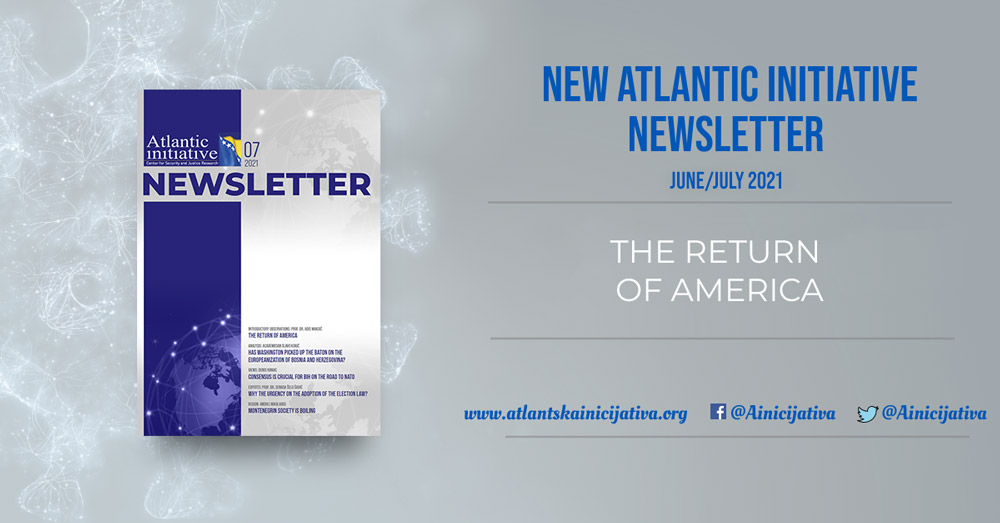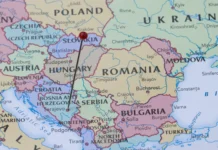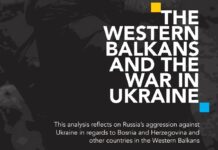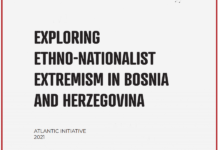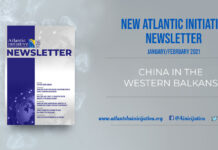The new issue of the Atlantic Initiative Newsletter is dedicated to the return of the United States of America to the Western Balkans. It considers the influence that the course taken by the new US Administration under the leadership of its 46th President, Joe Biden, will have on the political life of Bosnia and Herzegovina.
Contributors to this issue of our Newsletter are renowned authors: Prof. Dr. Adis Maksić, Academician Slavo Kukić, Dr. Senada Šelo Šabić, and Andrej Nikolaidis, a writer and journalist from Montenegro.
Prof. Dr. Adis Maksić, Professor at the Department of International Relations and European Studies at Burch University, is the author of Introductory Observations, titled “The Return of America”.
What can BiH expect from the return of the USA?
“Trends seen in recent weeks will continue, and that could shake the positions of numerous corrupt politicians and bring Bosnia and Herzegovina several steps closer to the NATO alliance”, writes Maksić.
Has Washington picked up the baton on the Europeanization of Bosnia and Herzegovina?
This question is posed in the texts authored by Academician Slavo Kukić.
“If so, BiH could in a relatively short period of time be freed from many of the obstacles hindering its Euro-Atlantic integration”, states Kukić.
Prof. Dr. Senada Šelo Šabić, Senior Research Associate at the Institute for Development and International Relations in Zagreb, writes about the most recent context for regional relations between Bosnia and Herzegovina and Croatia.
Šelo Šabić touches especially upon the changes to the Election Law in BiH, and challenges the insistence on the urgency of that process.
“Blackmail justified by urgency should not be used regardless of the threats that come with it. The Bosnian-Herzegovinian approach needs to be based on peace and progressive ideas, not on wars and divisions,” considers Šelo Šabić.
Andrej Nikolaidis writes about relations within Montenegro in the light of recent developments in the country.
Montenegrin society is boiling, states the author.
“In such a situation, Montenegro’s decision to join NATO seems even more important now than at the time it was taken. Numerous analysts say the security situation in Montenegro would be much more complex, and political processes unpredictable, were the country not a member of NAT”, concludes Nikolaidis.
The Newsletter is accessible on this link.


